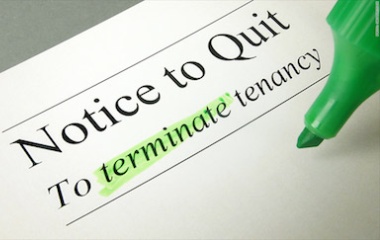
“Two people are holding on to a tallit. This one says ‘I found it’ and this one says ‘I found it’; this one says ‘it is all mine’ and this one says ‘it is all mine.’” (Bava Metzia 2a) So begins masechet Bava Metzia, the second of the three “bavas”, and sets the tone for the masechet.
While Bava Kamma focused on physical damages to property and persons Bava Metzia focuses on financial matters and the disputes that inevitably arise in commercial settings. We might classify Bava Kamma as a “blue-collar” masechet and Bava Metzia as a white collar one[1]. Instead of goring bulls and muggers our discussion focuses on such issues as pricing policies, employer-employee relations and tenant landlord issues to name a few. These can involve honest debates of interpretation of a deal, manipulation or outright lies. And such is the case with the opening Mishna quoted above. It could very well be that one of the parties is lying – hence the need to take an oath which will fetter all but the lowliest of liars[2]. It may be that they both picked it up at the same time and each honestly believes it is his so focused were they on acquiring the lost object. It is for this reason the oath the Sages instituted was “this one swears he does not own less than half and this one swears he does not own less than half.” While each honestly believes the full garment is theirs, to allow each to swear they are the owners would mean at least one of them is taking a false oath even if inadvertently. But as each claims the full amount they can’t very well take an oath that they own half. Hence the language “I don’t own less than half” which keeps their initial claim intact.
Human beings are complex people. And when it comes to money we become even more complex. Otherwise nice, honest people somehow can be enticed to fudge the the truth and at times much more. Our Sages knew exactly what they were talking about when they said “the majority [are involved] in theft.” (Bava Batra 165a)
While most people would never rob a bank, or mug somebody the majority of people do “allow themselves in the give and take of monetary dealing to hold back money which is rightfully others.” (Rashi s.v. rov bgezel)Let us recall that the Talmud was talking to ostensibly observant people who accept the precepts of the Torah.
If not for our propensity to be less than fully honest in our business dealings much – perhaps most – of the “three bavas” would be unnecessary. There would be little need to talk about the psychology of lying, or what claims sound reasonable and which must be rejected as likely false. There would be little need for discussions of price fraud, usury or even causing others needless mental anguish, onna’at devarim or how far a debtor will go in denying his debt.
Sometimes no attempt is made to hide the desire to make more money even at the expense of others. The laws of ona’ah, forbid overcharging for most[3] goods. Recognizing fluctuations in the market place the rabbis ruled that only when the price charged deviates 1/6 from the market norm can an ona’ah claim be made, allowing one to cancel the transaction. However such a claim had to made immediately upon discovery of the fraud. This was assumed to take no more than a few hours. Rabbi Tarfon ruled that an ona’ah claim is only recognized is the price discrepancy is 1/3 “and the merchants of Lod were happy.” After all they could get away with charging higher prices. However when Rabbi Tarfon extended the time that one could make a claim to the entire day the merchants said thanks, but no thanks “let Rabbi Tarfon leave us alone where we are.”
Much of the early part of the masechet deals with lost objects detailing the revolutionary notion of the Torah that there is whenever possible an obligation to return a lost object. ‘Finders keepers losers weepers’ reflect the norms of the ancient world. Here too is another example of Judaism’s revolutionary ethics – one that is so basic in the western world that we often forget its biblical roots.
The opening case of the masechet with which we began above may indicate that someone is lying. And thus the Mishna requires both parties to take an oath. Yet it is possible that both parties actually picked it up at the same time.
[1] This is a descriptive not a qualitative statement. Our rabbis greatly valued what we call today blue collar jobs – much more so than the white-collar professions. The State of Israel came into being only because people, many of them great intellectuals, were willing to “get their hands dirty” with “blue-collar” work.
[2] Due to the extreme severity with which Judaism treated perjury even many who would cheat, steal and assault would not swear falsely. Yet as we know there are exceptions and they are discussed in masechet Shevuot.
[3] The main exceptions are luxury goods i.e. a piece of art, where there the market is determined by the price one is willing to pay.



